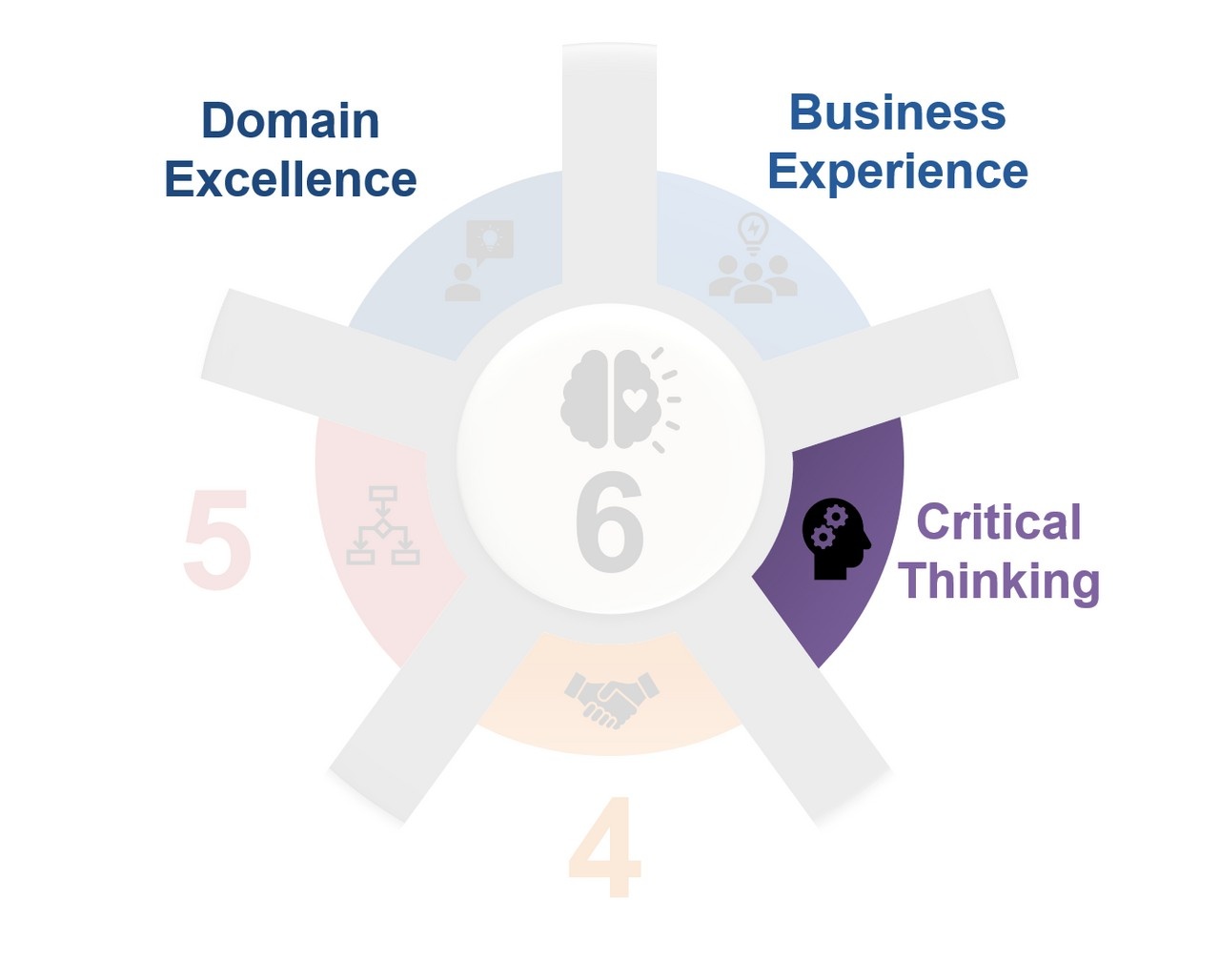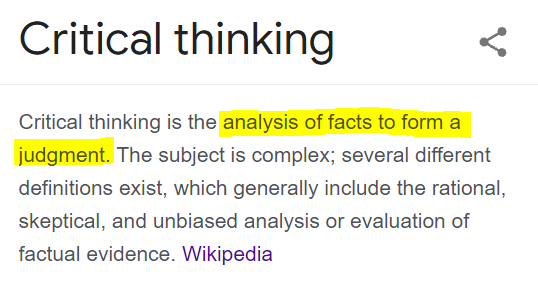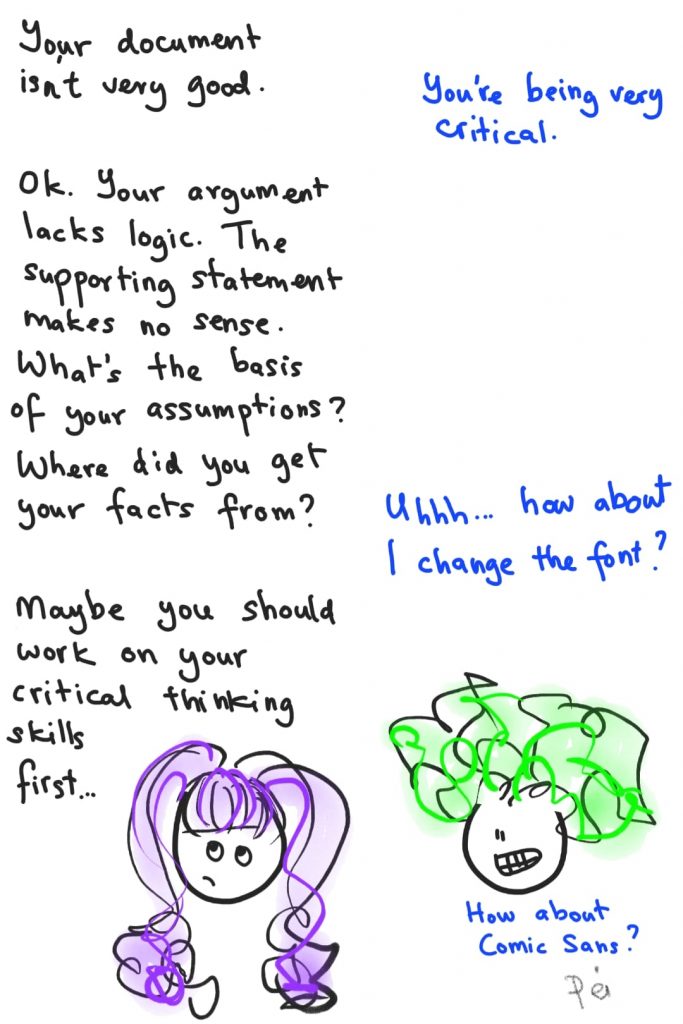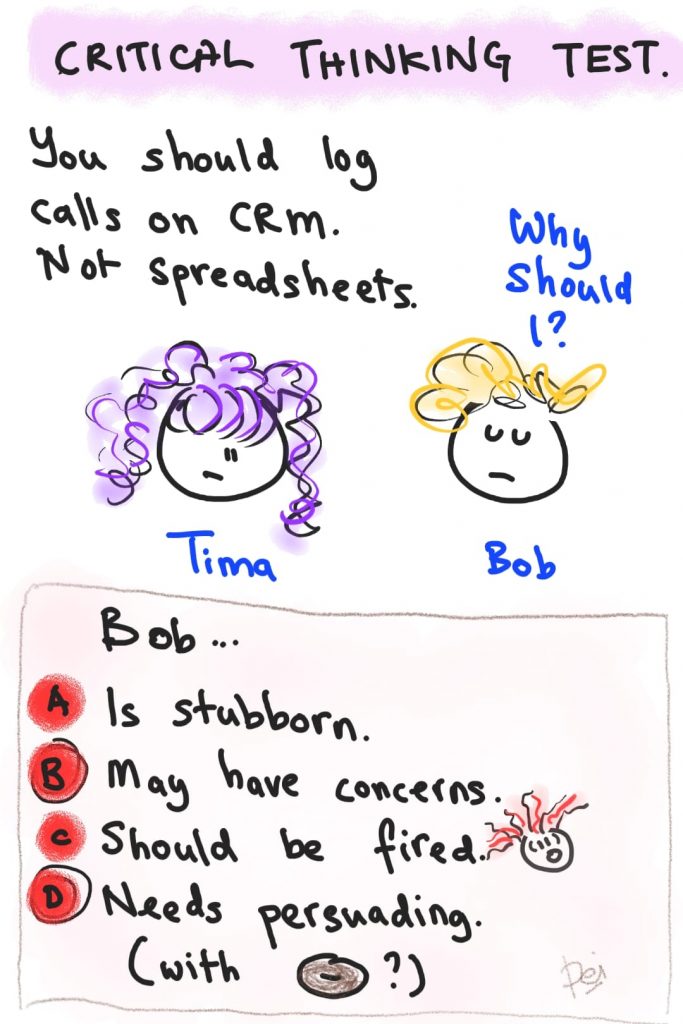
What is Critical Thinking?
Thankfully Wikipedia has come ot the rescue with a nifty definition

In essence, critical thinking requires you to use your brain. 🧠 Or grey cells. Or gray cells, as the Americans spell it. 😁
It’s about being an active learner, rather than being a passive vessel for information – a mindless gogglebox and Internet sludge consumer.
A Critical Thinker questions and challenges ideas and assuptions, and will seek to determine if what’s being said represents the entire picture.
They are open different ideas, and are ok with being wrong when presented with new information.
A Critical Thinker can
- Questions everything
- thinks systematically, considering each element in its wider context
- examines ideas and information carefully
- looks beyond what appears obvious
- uses evidence to support assertions
- uses logic and reasoning when framing arguments
- avoids making assumptions
- can recognise and avoid logical fallacies
- strives to be aware of their own cognitive biases
- considers different perspectives
- uses the critical thinking skills to make judgements

6 Crucial Critical Thinking Skills for Consultants
Adapted from Rasmussen University
1. Identification
Think about the situation or problem that you’ve been asked to solve. The client needs a new CRM, or to integrate current website with Salesforce, or to migrate from Microsoft CE.
Who and what are the factors that will influence the shape of this problem, and ask some initial questions.
- What’s the perceived problem here.
- What are the causes or triggers of the problem?
- Who is doing what that might be creating the situation or making it worse?
- etc etc etc.
2. Research
You need to find out what’s happening, and whether you can trust the sources that you’re getting the information from.
Validate and verify.
Make sure your information is independent, and unbiased (or as unbiased as can be). You want to make sure that your research is not tainted by people with hidden agenda. 🤨
3. Identify biases
Ooh this is a toughie.
Not only to identify your own, but also others who are sharin information with you. So here are some questions you can ask when you’re presented with information that smells a bit sus* 🤢
- Who benefits from the change?
- Does the source have hidden agenda?
- Is the information ‘filtered’ or ‘censored’ in any way by the source?
- Is the source using specific language to persuade the audience to their favour?
* sus = suspicious. Learned this playing Among Us with the kids.
4. Inference
The ability to infer or draw conclusion is an important skill. It’s an educated guess based on information that has been gathered and critically analysed before jumping to conclusion.
5. Determining relevance
Some questions to think about
- Why is something important?
- Is this a small data point?
- Is it an outlier or an indication of a trned that needs to be identified?
- What information is relevant?
- What axes are we looking at when searching for patterns that are important?
6. Curiosity
Be nosy (in a genuine not-wanting-to-ossip way).
Ask questions.
Ask open ended questions. Give the speaker the freedom to say what needs to be said, and a safe environment to be honest and candid.

A consultant who do not practice critical thinking skills will not last long in the industry. 🙅🏻♀️
- The wrong problem will be solved
- The wrong tool will be used
Both equally bad, and equally unacceptable.
